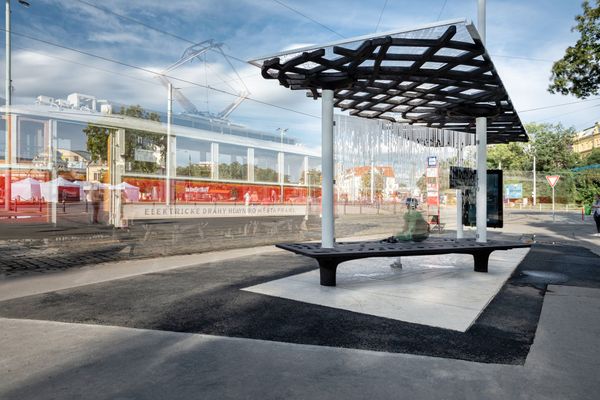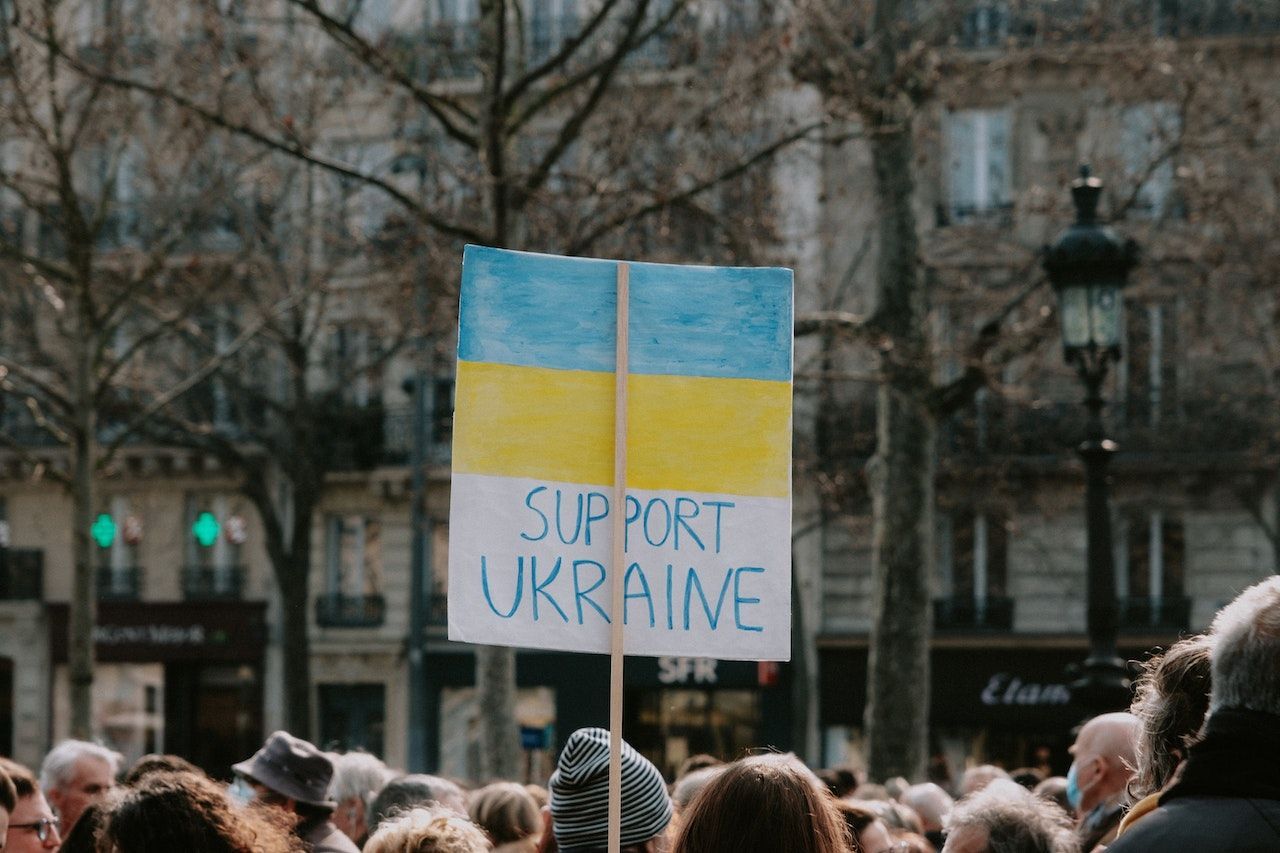The leaders of the West met in Warsaw to discuss the challenges caused by the Russo-Ukrainian war. The following thoughts and statements are snapshots of the war and what our leaders dare to say now.
The elite of Central Europe, accompanied by Germany and the US, gathered in Warsaw in early October to address several security challenges regarding the ongoing war. The atmosphere of the Warsaw Security Forum 2022 was fundamentally affected by the current events: Just a year ago, nobody would have imagined war in Europe in 2022, the nightmare of nuclear war had not been considered a real threat, and our primary concern had not been finding efficient responses to Russia’s aggression. Many people gave different answers to these issues, and it takes time to learn from the conference’s lessons – that is why we published this article two weeks after the event. What happened in Warsaw among Europe’s top decision-makers?
After the geopolitical winter comes the geopolitical spring
The energy transition has to be green so that we can simultaneously become independent from Russia and create a pleasant environment for investors. In this way, we can develop our industries and reduce our emissions. This step is necessary as all of us are at war, and Russia cannot be considered a reliable partner. Wind power and other renewables could fully cover electricity consumption by 2030 in Estonia. Estonians are really price-sensitive regarding natural gas, and residential consumption has fallen by 41 percent due to the increasing price. The coming winter will be difficult, but after the geopolitical winter comes the geopolitical spring. But if Russia can divide us, Europe will lose the war. Moscow cannot be stronger than the unity of democratic countries.
Riina Sikkut, Minister of Economic Affairs and Infrastructure, Estonia
Every single European state has the will to face the challenges, but Russia has deliberately made Hungary, Slovakia, Austria, and Germany dependent on their energy sources. We need to understand these countries, too, and build our future together.
Dainius Kreivys, Minister of Energy, Lithuania
Romania suffers from the war on the front line, but nuclear energy will play a leading role in the country’s energy mix. Romanians will experience shortages only in the worst-case scenario, as high prices reduce consumption.
George Sergiu Niculescu, Secretary of State, Ministry of Energy, Romania
Is NATO's eastern flank now an eastern front?
Poland was established in Central Europe more than 1000 years ago, in the conflict zone between two civilizations; between Berlin and Moscow. If one has not known Poland before the war, now, they know. The name of Rzeszów became famous as NATO troops are located there to prepare Ukrainian units to fight. Belarus is a threat as Minsk weaponized migration, and there must always be an eye kept on the Suwałki corridor too. Ukrainian nuclear facilities have been under surveillance since the first day of the war, as Russia could use them for its potential nuclear attacks. NATO’s „eastern flank” could soon become NATO’s „eastern front.” I know the military leadership of Kyiv, and I would like to see them as part of the NATO military leadership in the future that defeated the Russian army.
Rajmund Andrzejczak, Chief of the General Staff, Polish Armed Forces, Poland
No one thought in 2021 that we would be here, but Poland has already been the US’s most important ally and the biggest military actor in Central Europe last year. The realities changed in Ukraine: Ukraine and the Ukrainian army are organized, equipped, and cooperative, and they will win the war. The Kremlin cannot handle this; the mobilization will not be sufficient. The chance that Moscow will use nuclear weapons is low because cost analysis proves that it would not help the Russian army with the problems it faces; it would kill the population of the occupied territories and isolate Moscow in international politics. The Swedish and Finnish military forces that will soon join NATO are advanced and powerful. The two Nordic countries’ accession will expand the territorial scope of Article 5, but it is unlikely that NATO's eastern flank will get nuclear weapons from the US. Such a step would require very specific conditions.
David Petraeus, former Director of the Central Intelligence Agency (CIA), United States of America
There is sometimes a “shitstorm” in Berlin
Europeans experience war fatigue, but it cannot undermine the support for Ukraine to ensure that borders in Europe cannot be changed by force. Putin started the economic war, but we must remain united. Thus, we need social and economic support, which will create solidarity and unity in Europe.
Jan Lipavský, Minister of Foreign Affairs, Czechia
Macroeconomic support is needed in Europe, backed up by military development and even more sanctions that are also more effective. We would very much like the war to end tomorrow, but that is not a realistic possibility.
Konrad Szymański, Minister for European Affairs, Poland
We are in a hybrid war that aims to divide European societies and countries. The German demonstrations motivated by economic arguments, the pro-Russian protests in Germany, and fake news shall not be highlighted as it depicts that the minority is the majority, leading to a „shitstorm” in Berlin. We must ensure that society is adequately supported to keep it united. Germany is in constant dialogue with its partners, and Berlin is trying to give Ukraine military support that can bring victory not only on the battlefield but also in the hinterland. Still, Leopard battle tanks will not be sent to Ukraine yet. I fully understand the concerns regarding Germany’s viewpoints, but I ask everyone to trust us: Berlin wants to defend NATO and Europe. Nonetheless, there are limits that we set together with our international partners to provide the most effective support. Transatlantic relations have become incredibly strong recently, with great cohesion between the US and the EU, and NATO and the EU. The EU’s new defense strategy aims for a strong Europe, with Europe as a powerful player in NATO. To achieve these goals, Germany needs to reach an adequate, higher level of military spending.
Annalena Baerbock, Minister of Foreign Affairs, Germany
The EU sovereignty will never be complete with Russia on its heels
The aim is to inflict economic losses on Russia: the comprehensive economic sanctions policy will weaken Russia and have a deterrent effect for the future. Retaking the Ukrainian territories illegally seized by Russia is crucial, and the US’s primary goal is to strengthen Ukraine's position. Nonetheless, Washington’s aim is not a regime change in Moscow. The United States’ attention will not be distracted by the Far East; the aim is to maintain peace and the status quo in Taiwan.
Philip Gordon, National Security Advisor to the Vice President of the United States of America, USA
We must survive the coming winter, and every European household must be helped to keep the unity in our continent. Gas, coal, and oil are merely geopolitical weapons in Moscow’s hands, but the EU’s sovereignty cannot be complete in the case of such dependency on Russia. Energy independence is needed for the EU’s strengthening and survival, but this can only come at a high cost; it will be painful. For peace, Russia must withdraw from the occupied territories and pay reparations to Ukraine and to all countries that have suffered personal or material damage due to the war.
Olha Stefanishyna, Deputy Prime Minister for European and Euro-Atlantic Integration, Ukraine
Hype&Hyper was the only Hungarian media outlet present at the Warsaw Security Forum.

Art and function—the award-winning concept by Robert Majkut Design

Sauna in a seashell










